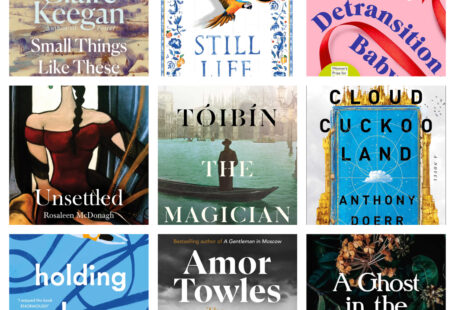The first thing to note about Coventry by Rachel Cusk is that it is not a sequel to her (brilliant) trilogy of novels, Outline, Transit, and Kudos. Faber do their best to hint that it might be by following the same design template for the book, both outside and in. On the outside, heavy black modernist text around a detail from a cubist painting, the design rough-hewn and unfinished in contrast to the glassy polish of Cusk’s prose. On the inside, the text in the same sans serif font (Optima, I think) as the novels. Still, this is not a sequel.
Instead we have a no less familiar beast: the grab-bag of journalism and occasional pieces. Something to protect the publisher’s investment, keep the author’s name in the review columns, maintain her profile while she writes her next novel. Ostensibly Coventry is divided into three sections, but the true distinction is between the personal essays of the first part, and the reviews, introductions and opinion pieces of the other two. The latter are capable but routine — is there any other type of essay as straitjacketed and predictable as the introduction to a classic novel? Little about them calls for collection between hard covers, or sheds much light on what makes Rachel Cusk so individual a writer.
But the first part almost justifies Faber’s heavy hints. These essays are thick with the distanced, surgical insights into human relationships that characterised the trilogy. More particularly, they reveal quite how clearly Cusk views relationships as a struggle for control of the narrative. The title essay describes how her parents periodically send her to Coventry, cutting off communication in frustration at their inability to control the narrative of their shared lives. Elsewhere she identifies the shock of divorce in the way that it splits the once agreed narrative of the family into two mutually hostile versions, each bent on discrediting the other.
It’s part of the peculiarity of the trilogy that we learn almost nothing of the protagonist. Instead we hear the stories told to her by the people she meets, the narratives that they have constructed of their lives. This construction is something we all do, in trying to make our lives intelligible to ourselves as well as to others. But seeing these stories presented blankly on the page, their one-sidedness becomes painfully obvious — we never hear from the other people described in them. The price of control is a kind of one-dimensionality.
It’s understandable that Faber thought these personal essays alone were not enough to make up a book — who would pay €20 for a 135-page hardback? But in bulking Coventry out, they missed the chance to make it as distinctive as the novels it succeeds.







Recent Comments